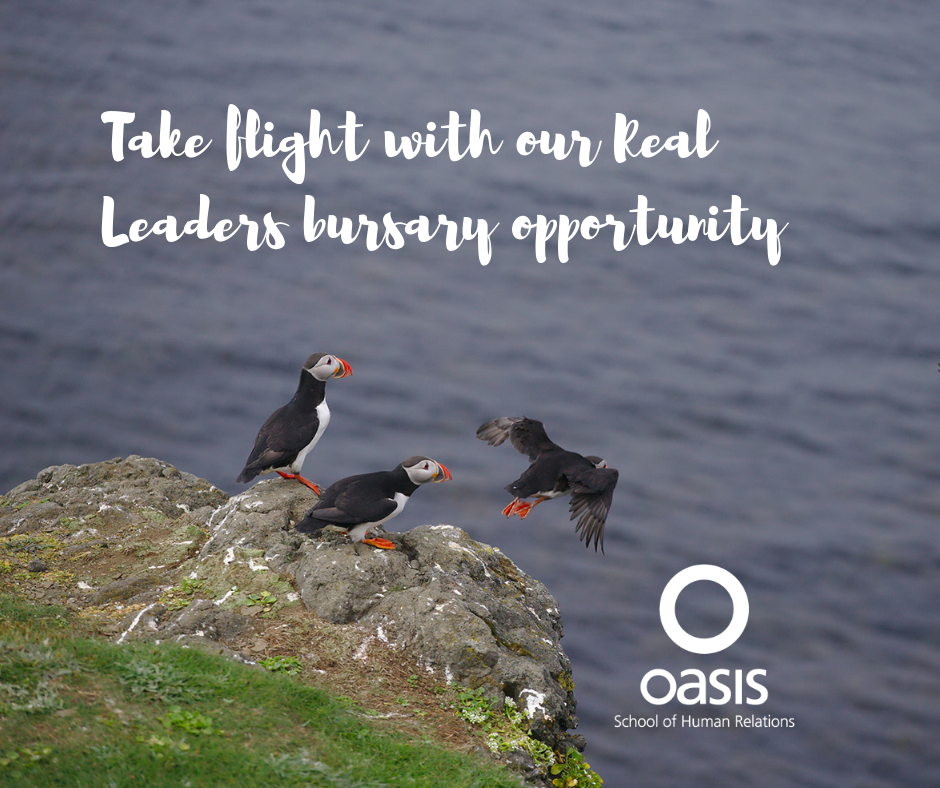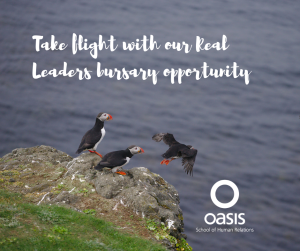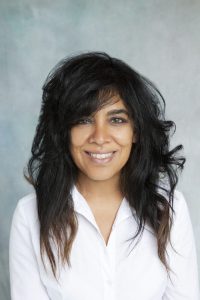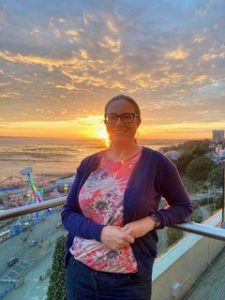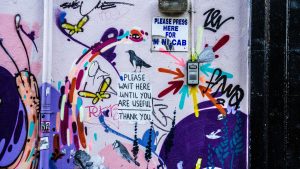
Fidelis Chebe set up Migrant Action in 2016 to support non-asylum seeking migrants and refugees. As well as overseeing the running of Migrant Action he is also Operations and Development manager at RETAS (Refugee Training and Advice Service), a charity which offers support to refugees and asylum seekers. He was awarded one of the two bursary places this year. We spoke with him recently to find out what impact the programme was having.
Can you sum up the programme in a few words?
It’s been life-changing. It’s been a worthy journey. It’s transformational. You come into this process and you don’t leave without it transforming you for the better.
How did you find out about the Real Leaders Programme?
I am acutely aware of my limitations and areas for improvement therefore constantly self evaluate in terms of capacity and also skills. As such, strategically I’ve been able to identify and bring different people on board to support me in the work as a director at Migrant Action and one of those partners was The Paul Hamlyn Foundation in London. They suggested the Oasis programme would be a good development opportunity if I could secure the bursary. Initially, Migrant Action didn’t meet the criteria for the bursary so I challenged it on the basis that if small organisations like Migrant Action struggle to access opportunities like the leadership development coaching courses or Real Leaders programme, then the prospects for their development, growth and sustainability would be limited. My challenge was considered and as they say, the rest is history. The collection of coincidences that got me here is astounding, the timings lined up.
What have been your biggest take-outs from the programme so far?
I came into the programme with a metaphorical briefcase requiring some tools that would enable me to make huge strategic changes in my respective roles at Migrant Action and RETAS. I was looking for processes, systems, approaches. But what was in my briefcase, which I hadn’t realised, was me. It’s got to start with me. Until I work on myself, there’s no point engaging with the external as I am the instrument through which change is delivered.
The awareness came in little trickles… how do I relate with the team? How can I bring the team with me? How do I contact the team? The revelation has been to get clear about what I really want when I’m contracting or connecting with others and being willing to step into the discomfort. Real leadership is about aligning ideas, strategies, processes and systems with your whole person – heart, head and soul. What’s really relevant is self-examination (I need to look at myself, look at my integrity and be honest about what I want. I need to care about myself more and bring my wholeness to the workplace. That has been quite transformational both in terms of work and personal life.
So in focusing more on me, I’ve found a balance between challenge and compassion (without feeling guilty). I’m far more confident now in making choices and decisions around conscious leadership than I was before.
What do you think of the style and design of the programme?
It is deliberately designed to demonstrate that leadership is not a robotic exercise where leaders/managers stand at a distance trying to ‘fix’ situations or people. Good leadership starts with some soul, heart and head searching in order to effectively lead others.
The programme allows plenty of time for discussion. The balance between conversations, interaction with your peer group, plenty of space to reflect between sessions is just right. Getting away and having time to bond as a group of learning peers introduces a whole new dynamic to a programme. When you put it all together, it makes the programme very evolutionary. As the programme unfolds, you get to really distil what the programme is about, peeling back layers of the onion until you get to the core of it, which is you.
Do you feel the bursary is an investment in the individual, organisation or both?
It’s both. They’re not mutually exclusive. Both organisations, I hope both organisations I work for would be in a much better place as a result of my involvement in the programme. I have a vested interest to ensure it works to justify the learning and to ensure that the organisations grow and prosper.
The beauty of this course is about how you can be a really effective person in the workplace by first being a really effective person to yourself. It revitalises you as a person, learning to open your heart, bring some new energy in, being kinder to yourself. And that means you’re able to think more clearly and bring kindness into the workplace.
Would you encourage others to do the programme?
Absolutely! However, I am mindful that these opportunities are not easily accessible to people outside OASIS circles of networks. Also, it requires extra effort and some degree of guts if you live in communities where having access to programmes like this is not the norm. (I am referring more specifically to minority communities and disadvantaged groups.) Accessing and engaging in such programmes may be daunting therefore I would advocate that OASIS extends or increases its presence in those communities/spaces that it is not currently visible.
I am a passionate ambassador for OASIS and I would tell people about the benefits and how much difference this will make to both their personal and professional lives. I see a lot of dreamers, with so much vision and passion and energy and creativity but that never gets to see the light of day and that’s a real shame because they don’t have access to programmes like this. Oasis can make a positive difference in those communities especially enabling and empowering young future leaders.
Tell me about your organisation and what drew you to that kind of work?
 I sit within two different organisations – Migrant Action (my organisation), which was set up in 2016, primarily to support people who are non-asylum seeking migrants or refugees. I started the not-for-profit organisation based on my lived experience of migration and an advocate for equality, social justice and global peace. I identified a gap in service provision for migrants (non-asylum seekers/refugees) and the costly consequences of the absence of structured support. Migrant Action was set up to fill that gap providing advice and guidance, practical support and a range of other interventions.
I sit within two different organisations – Migrant Action (my organisation), which was set up in 2016, primarily to support people who are non-asylum seeking migrants or refugees. I started the not-for-profit organisation based on my lived experience of migration and an advocate for equality, social justice and global peace. I identified a gap in service provision for migrants (non-asylum seekers/refugees) and the costly consequences of the absence of structured support. Migrant Action was set up to fill that gap providing advice and guidance, practical support and a range of other interventions.
I am also the Operations and Development manager for RETAS, a charity that provides advice, education, training, employability and general integration support to refugees and asylum seekers
The basis of all my work in this sector is largely informed by a deep passion for social justice, a sense of equality and fairness. There’s a real desire in me to challenge structural injustices and enable social change.
At Migrant Action, we’re like every small organisation looking at what we’re going to do now, and if we will survive? We have in the first two years, and we’ve set out a vision and our ambition. So we’ve been looking strategically to see how we move into the next phase of sustainability, growth and impact. I am leading a similar process at RETAS and OASIS has played an integral part in helping me shape and hopefully achieve these ambitions.

